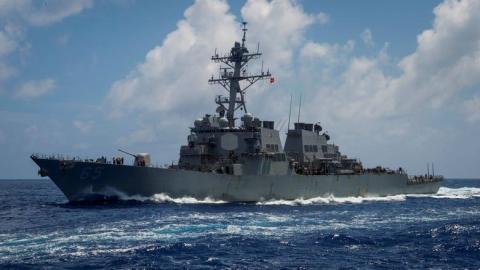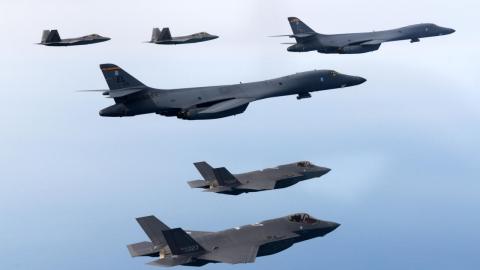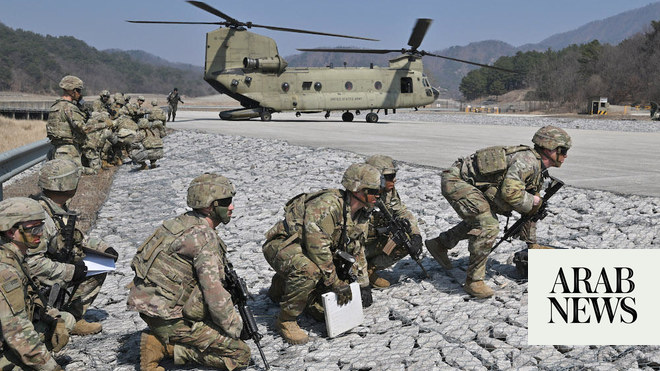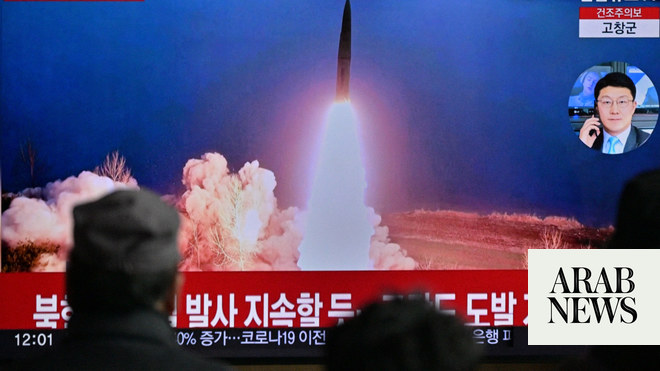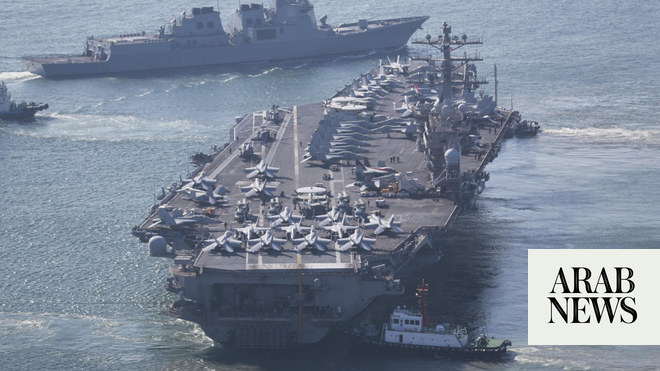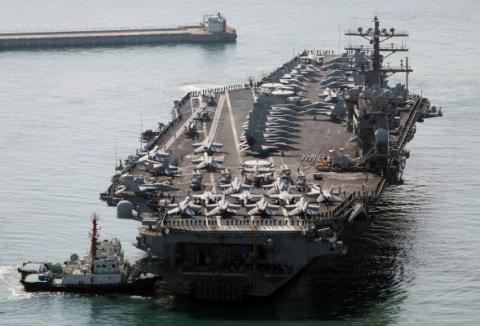
Japan and the United States carried out on Saturday joint air drills above the East China Sea, Japan’s Air Self Defense Force (ASDF) said.
Amid simmering tensions with North Korea over its recent missile tests, Japanese F-15 fighter jets conducted an air exercise with US B1-B bombers.
The exercise involved two US Air Force B-1B Lancer bombers flying from Andersen Air Force Base on the US Pacific island territory of Guam, which were joined by two Japanese F-15 jet fighters.
The joint drill also comes as South Korea braces for a possible further missile test by North Korea as it marked its founding anniversary, just days after its sixth and largest nuclear test rattled global financial markets and further escalated tensions in the region.
On August 31, Japanese F-15 fighter jets also conducted an air exercise with US B1-B bombers and F-35 stealth fighters in skies south of the Korean peninsula, two days after North Korea launched a ballistic missile over northern Japan.
Earlier, the US called for a vote Monday on a United Nations resolution that would impose the toughest-ever sanctions on North Korea, a move that could lead to a showdown with the countrys biggest trading partner China and its neighbor Russia.
The Trump administration adopted a totally new approach with this resolution, circulating an American draft Tuesday and setting a vote six days later. With previous sanctions resolutions, the US spent weeks and sometimes months negotiating the text with China and then presenting a resolution to the rest of the Security Council for a vote.
Several diplomats said the US demand for a speedy council vote was aimed at putting maximum pressure on China and reflected Washingtons escalating concern over North Koreas latest nuclear test, which its leaders touted as a hydrogen bomb, and its recent ballistic missile launch over Japan.
Britains UN Ambassador Matthew Rycroft, who backs "robust" new sanctions, said Thursday that the US proposals to ban all oil imports and textile exports and prohibit North Koreans from working overseas — which helps fund and fuel the countrys nuclear and missile programs — are "a proportionate response" to its "illegal and reckless behavior."
Rycroft stressed that "maximum possible pressure" must be exerted on North Korea to change course and give diplomacy a chance to end the crisis.
The proposed US sanctions would also freeze all foreign financial assets of the government and its leader, Kim Jong Un. The US draft also identified nine ships that have carried out activities prohibited by previous UN resolutions and would authorize any UN member state to stop these vessels on the high seas without their consent and use "all necessary measures" — which in UN language includes force — to carry out an inspection and direct the vessel to a port.
The diplomats, speaking on condition of anonymity because discussions on the resolution have been private, said all 15 Security Council members discussed the draft on Friday, and both China and Russia appeared willing to negotiate.
Russia has said sanctions arent working and President Vladimir Putin expressed concern that a total oil cutoff could hurt the North Korean people. Beijing and Moscow have called for a resolution that focuses on a political solution and have proposed a freeze-for-freeze that would halt North Korean nuclear and missile tests in exchange for the US and South Korea halting their joint military exercises — an initiative rejected by the Trump administration.
There was no word on the outcome of negotiations, and whether any changes sought by the Russians and Chinese were acceptable to the United States.
A brief statement from the US Mission to the United Nations late Friday said: "This evening, the United States informed the UN Security Council that it intends to call a meeting to vote on a draft resolution to establish additional sanctions on North Korea on Monday, September 11."
UN Secretary General Antonio Guterres, who called the nuclear risk in North Korea the most dangerous crisis in the world today, told reporters Tuesday that "the unity of the Security Council is absolutely crucial." He explained that only a united council can provide the pressure needed to enable successful negotiations to take place to denuclearize the Korean Peninsula.
As for the North Koreans, their official news agency on Friday said the countrys "nuclear weaponization ... has reached its final phase."
The KCNA report sharply criticized US Ambassador Nikki Haley for playing "the flagship role" in the Trump administrations "hideous sanctions and pressure racket against the DPRK."
The agency called Haley "a political prostitute" and dismissed as "rubbish" her comments at an emergency Security Council meeting Monday following the latest nuclear test that the Democratic Peoples Republic of Korea is "begging for a war." The agency accused the US of being the "chieftain of aggression and war and wrecker of peace."
The US Mission to the United Nations said it had no comment on the KCNA report, which concluded by saying: "The US administration will have to pay a dear price for her tongue-lashing."





